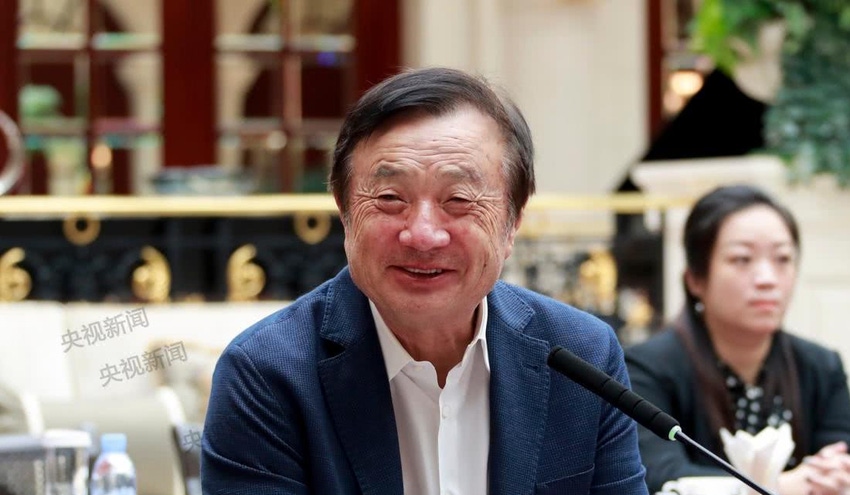Huawei founder has been expecting 5G conflict for a decade
After Motorola pulled out of discussions to purchase Huawei more than a decade ago, Huawei founder Ren Zhengfei warned executives of a conflict, but this has exceeded what he had in mind.
August 21, 2019

After Motorola pulled out of discussions to purchase Huawei more than a decade ago, Huawei founder Ren Zhengfei warned executives of a conflict, but this has exceeded what he had in mind.
With Huawei as the proxy of the on-going, and increasingly aggressive, trade war between the US and China, big changes are on the horizon. Few in the business anticipated such drama.
“I could never have expected this controversy to be so intense though,” Ren said in a recent interview with Sky. “We knew that if there were two teams climbing up the same mountain from opposing sides, we would eventually meet on the peak and we may clash. We just didn’t expect this clash to be so intense and lead to this kind of conflict between the state apparatus of a country and a company.”
Ren has reportedly sent out another memo detailing the fallout of the conflict, which does finally seem to be hitting home. Job cuts are on the horizon, with replicative staff facing the axe and a simplified management structure promised. Contracts and payments will face higher scrutiny also, to keep an eye on free cash flow, while R&D seems to have been impacted also.
This is perhaps the most worry outcome of this on-going saga. Huawei can weather the storm in terms of financial impact and reputational damage but hitting the technology roadmap is not an element anyone would have wanted to plan for.
“In August and September, we will undergo a run-in period before we can mass produce these new versions,” Ren said. “So, we can only produce around 5,000 base stations each month during that period. Following that, we will be able to produce 600,000 5G base stations this year and at least 1.5 million next year. That means we don’t need to rely on US companies for our survival in this area.”
Huawei might still be considered the leader when it comes to the radio and transmission, but we would have suspected the ‘beta’ mode of its 5G products might have been completed by now. There are customers driving towards scaled deployment today, yet they seemingly don’t have the raw materials at their disposal. This is perhaps one of the most obvious impacts of the trade war and entry into the Entity List; Huawei has had to re-jig some products to ensure a US embargo could be compensated for.
The other very obvious challenge concerns the operating system on its smartphones.
Again, Ren has suggested the prospect of such a ban has been on the horizon, Harmony OS has been an on-going project for “several years”, though we suspect this is somewhat of an exaggeration. If Ren and the management team had forecast this issue, it wouldn’t be in the sticky situation it could potentially find itself in.
“If the US doesn’t want to sell the Android system to us, we will have no choice but to develop our own ecosystem,” Ren said. “This isn’t something that can be achieved overnight. We estimate that it will take us two or three years to build this ecosystem. In light of all this, we don’t believe we will be able to become the No.1 player in the device sector any time
soon.”
This is a massive problem for Huawei. The potential damage should not be undervalued whatsoever.
If Huawei cannot resolve its relationship with Android, it potentially becomes a security risk to users, as its devices will not be treated to timely security updates. Introducing Harmony OS onto Huawei devices might be the only reasonable route forward to address security concerns, but without the supporting ecosystem it becomes difficult to justify purchasing a device.
The consequences of this conflict are starting to become very apparent. Not just in the Huawei business, but there are straining relationships between governments while telco deployment plans are potentially going to be impacted.
Ren might have been able to predict a conflict between the US and China, wrestling for control of the 5G economy, but few could have predicted the current incumbent of the White House. This is the variable factor which would have caught everyone by surprise (except the writers of The Simpsons).
To call President Trump unconventional would be one of the understatements of the century. The approach to politics, relationship management and conflict resolution currently been applied by the US Government is something which is more at home on satire than it is in the home of the worlds’ most powerful and influential nations. This is the variable Ren was missing, perhaps he was expected a reasonable, mature and measured statesman.
So far, Huawei has weathered the storm, but slowly the defences are being eroded. The damage to Huawei’s business is starting to show.
About the Author(s)
You May Also Like








.png?width=300&auto=webp&quality=80&disable=upscale)


_1.jpg?width=300&auto=webp&quality=80&disable=upscale)


.png?width=800&auto=webp&quality=80&disable=upscale)